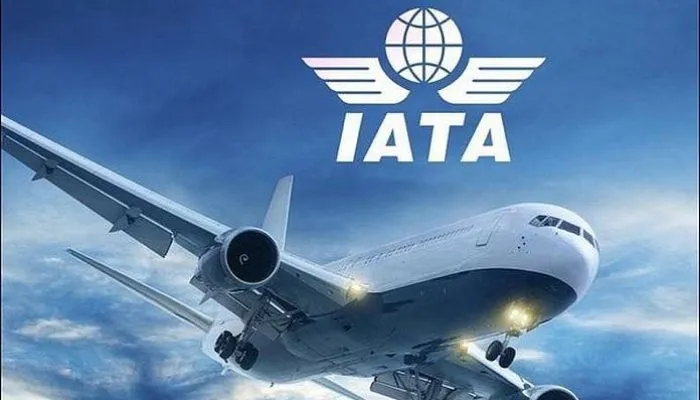A groundbreaking “Value of Air Transport” study recently unveiled by the International Air Transport Association (IATA) has illuminated the profound and multifaceted economic impact of the aviation sector within Kenya. The comprehensive report reveals that in the year 2023, aviation facilitated a staggering Ksh 425 billion (equivalent to USD 3.3 billion) in economic activity across the nation. This substantial figure represents the total impact of the industry, encompassing not only direct operations but also the extensive wider supply chain, the spending of employees within the sector, and the significant contributions from tourism activities directly and indirectly enabled by air travel.
Aviation: A Pillar of Kenya’s Economy
The Ksh425 billion contribution translates to a significant 3.1% of Kenya’s total Gross Domestic Product (GDP), underscoring the pivotal role that a vibrant and thriving aviation sector plays in the overall economic health and prosperity of the nation. This crucial data arrives at a significant juncture, as Nairobi today proudly hosts the 37th IATA Ground Handling Conference (IGHC), a landmark event marking its first occurrence on African soil. The confluence of this report’s release and the hosting of this prestigious conference underscores the growing recognition of Africa’s, and particularly Kenya’s, importance in the global aviation landscape. Understanding the fundamental principles of aviation economics helps to appreciate these figures.
Untapped Potential in African Skies
Against the backdrop of the immense yet largely untapped potential inherent in African aviation, the current 3.1% GDP contribution from Kenya’s aviation sector hints at significant opportunities for future growth. Estimates suggest that a more fully realized African aviation market could unlock substantial additional economic growth across the continent. This potential extends far beyond Kenya’s current contribution, highlighting the transformative power of air connectivity for economic development, trade, and tourism across the entire African continent. Realizing this potential, however, necessitates strategic investments and policy frameworks that foster a conducive environment for the aviation industry to flourish. Exploring the future of African aviation reveals promising growth projections.
IATA Director General’s Perspective on Growth and Challenges
Speaking on the compelling findings of the report, Willie Walsh, IATA’s Director General, emphasized the critical role of Kenya’s aviation sector as a key economic driver. “Kenya’s aviation sector is a vital economic driver, contributing USD 3.3 billion to GDP and supporting 460,000 jobs. With Africa’s aviation market projected to grow at a robust rate of 3.7% annually over the next 20 years, the potential for these substantial economic and social benefits to grow exponentially is enormous. This future growth, however, will be contingent upon the development of efficient and cost-competitive infrastructure, the cultivation of a skilled workforce across all aviation disciplines, and the collective commitment to achieving net zero carbon emissions by 2050,” Mr. Walsh asserted. His statement highlights both the immense opportunities and the significant challenges that lie ahead for the African aviation industry. Understanding IATA’s role as the global trade association for airlines provides context for their insights.
Kenya Airways CEO Underscores Timeliness of the Conference
Echoing Mr. Walsh’s sentiments, Allan Kilavuka, the Chief Executive Officer of Kenya Airways, emphasized the timely significance of hosting the IATA Ground Handling Conference in Nairobi, particularly in light of the report’s findings. “This insightful report from IATA unequivocally underscores the immense value that aviation brings to Kenya’s economy and the livelihoods of its people. Hosting the IATA Ground Handling Conference here in Nairobi at this crucial time provides a vital platform for us to collaboratively tackle the challenges and seize the opportunities that have been clearly highlighted in this comprehensive study. By focusing our collective efforts on enhancing efficiency on the ground, making strategic investments in the development of our workforce, and diligently adopting global best practices in ground handling operations, we can ensure that Kenya’s aviation sector continues to serve as a powerful engine for sustained economic growth and a key enabler of seamless connectivity for the entire African continent,” Mr. Kilavuka stated. His remarks underscore the importance of ground handling efficiency as a cornerstone of a successful aviation industry.
Focus Areas for the IATA Ground Handling Conference
The 37th IATA Ground Handling Conference is strategically focused on addressing critical areas essential for the continued advancement of the aviation sector. Key discussions and initiatives at the conference are centered around modernizing ground handling operations through the adoption of innovative technologies and streamlined processes, making significant investments in workforce development to ensure a skilled and efficient talent pool, and fostering enhanced collaboration and seamless coordination among all stakeholders within the aviation ecosystem. These focus areas are directly aligned with the challenges and opportunities identified in the IATA report.
IATA’s Key Priorities for Kenya’s Aviation Growth
To effectively address these critical areas and ensure the sustained and robust growth of Kenya’s aviation sector, IATA has outlined three key strategic priorities that require concerted effort and collaboration:
- Strategic Infrastructure Development: This priority emphasizes the continuous and collaborative engagement between airport authorities and airlines to develop and maintain strategic infrastructure that aligns with evolving global standards. The goal is to create efficient and cost-effective facilities that not only meet the current demands of the industry but also proactively strengthen Kenya’s position as a leading aviation hub in East Africa. This includes investments in airport capacity, runway maintenance, air traffic management systems, and cargo handling facilities. Understanding the importance of airport infrastructure is key to appreciating this priority.
- Enhancing Passenger and Cargo Facilitation: This priority focuses on streamlining the movement of both passengers and cargo through the effective implementation of modern technologies and efficient processes. Key initiatives include the widespread adoption of the Electronic Travel Authorization (eTA) system to simplify passenger processing and the development of a comprehensive digitalization strategy across all aspects of airport and airline operations. These efforts are vital to boosting Kenya’s appeal as a preferred destination for both travel and trade, thereby enhancing its competitiveness as a regional hub. Exploring the benefits of digitalization in aviation provides further context.
- Investing in Aviation Workforce Training: Recognizing that a skilled workforce is the backbone of a thriving aviation sector, this priority emphasizes the critical need for strategic investments in comprehensive aviation workforce training programs. These programs should cover a wide range of essential areas, including technical operations, ground operations, aircraft maintenance, digital transformation, and sustainability practices. IATA’s regional training center, in partnership with Kenya Airways, is poised to play a pivotal role in building the necessary skills and expertise for the future of Kenyan aviation. Understanding the importance of aviation workforce development highlights its significance.
About Kenya Airways: The Pride of Africa
Kenya Airways (KQ), proudly known as “The Pride of Africa,” stands as a leading African carrier with a clear mission: to actively propel Africa’s prosperity by seamlessly connecting its diverse people, rich cultures, and dynamic markets. The airline currently flies to an extensive network of 45 destinations across the globe, with a strong focus on the African continent, serving 37 destinations within Africa. Through its strategic hub at Nairobi’s Jomo Kenyatta International Airport (JKIA), Kenya Airways facilitates the movement of over 5 million passengers and more than 70,000 tonnes of air cargo annually, playing a crucial role in regional connectivity and trade. As the sole African carrier within the prestigious SkyTeam Alliance, Kenya Airways offers its customers access to a vast global network encompassing over 1,060 destinations in 173 countries, opening up a world of possibilities for travel and commerce. The airline prides itself on delivering a delightful flying experience characterized by a warm and caring African touch. This exceptional African hospitality has consistently earned Kenya Airways global recognition, including the esteemed Skytrax World Airline Awards, where it was honored with the accolades for Best Airline Staff and Best Airline Cabin Crew in Africa in 2024. Furthermore, Kenya Airways has been recognized as a Top Employer of the Year by The Employers Institute and named the Africa Leading Airline at the World Travel Awards 2024, underscoring its commitment to excellence in service and as an employer. More information about Kenya Airways is available on their website.
About IATA: The Voice of the Global Airline Industry
The International Air Transport Association (IATA) has a long-standing commitment to providing comprehensive analyses of the economic impact of aviation worldwide. To this end, IATA has published over 80 national “Value of Air Transport” studies, which are publicly available. These in-depth reports are developed in close partnership with independent economists at Oxford Economics, a globally recognized leader in economic forecasting and analysis. Each report contains a detailed assessment of the aviation sector’s contributions to a nation’s Gross Domestic Product (GDP), employment generation, tourism revenue, cargo transportation, and overall connectivity. Given the sustained and growing global demand for air transport services, it is reasonable to infer that the actual economic contribution and the number of jobs supported by the aviation industry have likely increased since the data for these reports were compiled in 2023, further underscoring the dynamic and vital role of aviation in the global economy.
Ready to take your career to the next level? Join our dynamic courses: ACCA, HESI A2, ATI TEAS 7 , HESI EXIT , NCLEX – RN and NCLEX – PN, Financial Literacy!🌟 Dive into a world of opportunities and empower yourself for success. Explore more at Serrari Ed and start your exciting journey today! ✨
photo source: Google
By: Montel Kamau
Serrari Financial Analyst
14th May, 2025
Article, Financial and News Disclaimer
The Value of a Financial Advisor
While this article offers valuable insights, it is essential to recognize that personal finance can be highly complex and unique to each individual. A financial advisor provides professional expertise and personalized guidance to help you make well-informed decisions tailored to your specific circumstances and goals.
Beyond offering knowledge, a financial advisor serves as a trusted partner to help you stay disciplined, avoid common pitfalls, and remain focused on your long-term objectives. Their perspective and experience can complement your own efforts, enhancing your financial well-being and ensuring a more confident approach to managing your finances.
Disclaimer: This article is for informational purposes only and does not constitute financial advice. Readers are encouraged to consult a licensed financial advisor to obtain guidance specific to their financial situation.
Article and News Disclaimer
The information provided on www.serrarigroup.com is for general informational purposes only. While we strive to keep the information up to date and accurate, we make no representations or warranties of any kind, express or implied, about the completeness, accuracy, reliability, suitability, or availability with respect to the website or the information, products, services, or related graphics contained on the website for any purpose. Any reliance you place on such information is therefore strictly at your own risk.
www.serrarigroup.com is not responsible for any errors or omissions, or for the results obtained from the use of this information. All information on the website is provided on an as-is basis, with no guarantee of completeness, accuracy, timeliness, or of the results obtained from the use of this information, and without warranty of any kind, express or implied, including but not limited to warranties of performance, merchantability, and fitness for a particular purpose.
In no event will www.serrarigroup.com be liable to you or anyone else for any decision made or action taken in reliance on the information provided on the website or for any consequential, special, or similar damages, even if advised of the possibility of such damages.
The articles, news, and information presented on www.serrarigroup.com reflect the opinions of the respective authors and contributors and do not necessarily represent the views of the website or its management. Any views or opinions expressed are solely those of the individual authors and do not represent the website's views or opinions as a whole.
The content on www.serrarigroup.com may include links to external websites, which are provided for convenience and informational purposes only. We have no control over the nature, content, and availability of those sites. The inclusion of any links does not necessarily imply a recommendation or endorsement of the views expressed within them.
Every effort is made to keep the website up and running smoothly. However, www.serrarigroup.com takes no responsibility for, and will not be liable for, the website being temporarily unavailable due to technical issues beyond our control.
Please note that laws, regulations, and information can change rapidly, and we advise you to conduct further research and seek professional advice when necessary.
By using www.serrarigroup.com, you agree to this disclaimer and its terms. If you do not agree with this disclaimer, please do not use the website.
www.serrarigroup.com, reserves the right to update, modify, or remove any part of this disclaimer without prior notice. It is your responsibility to review this disclaimer periodically for changes.
Serrari Group 2025












